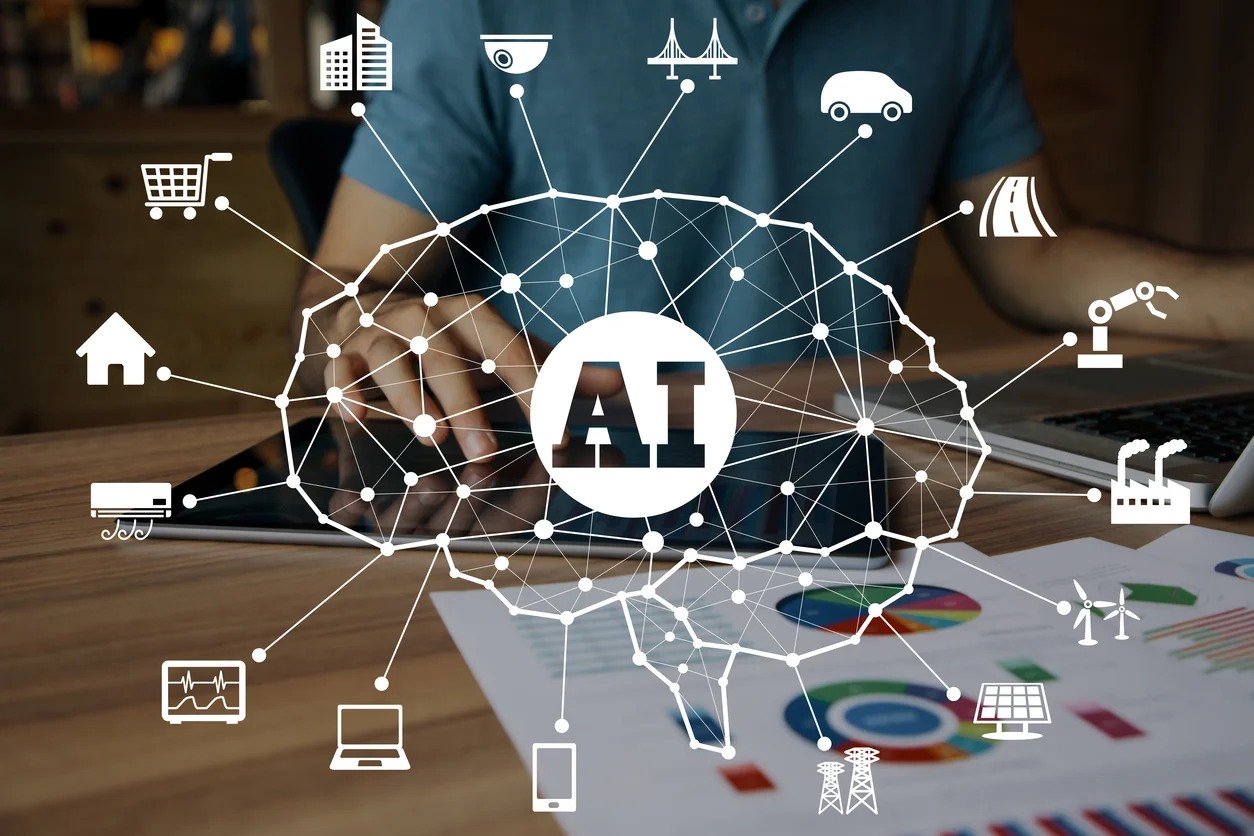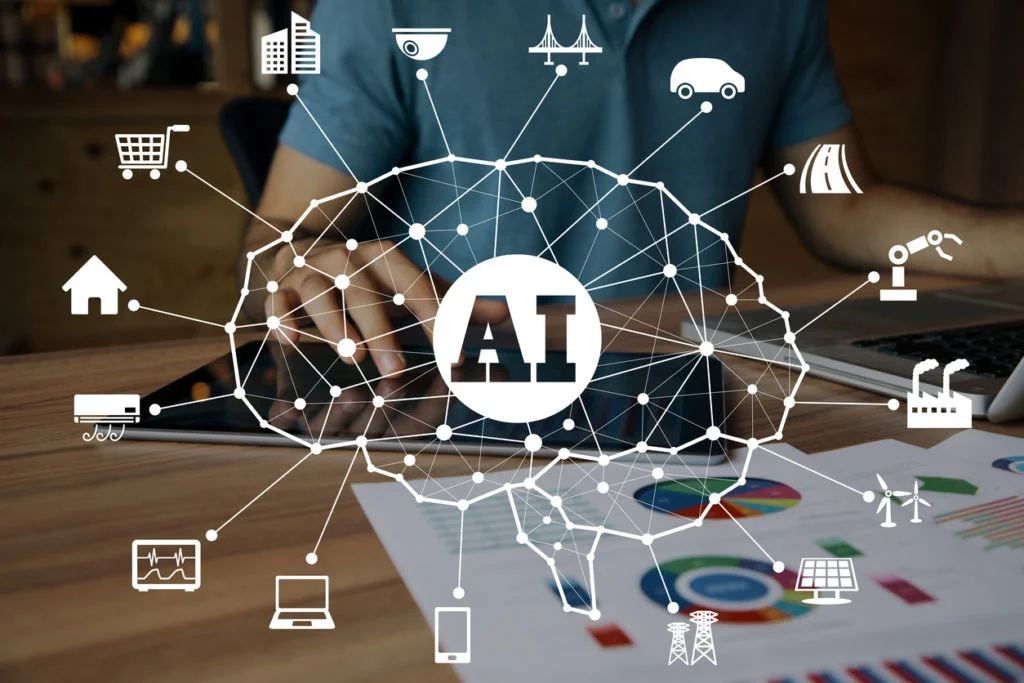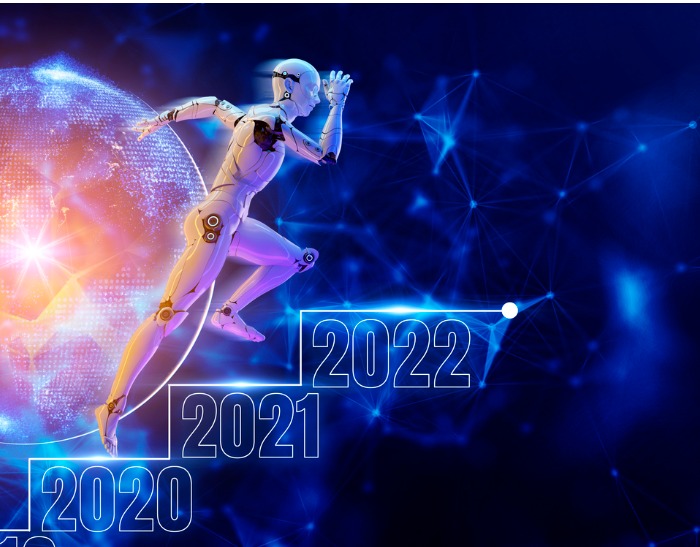Last year came with a lot of new technologies that were designed to make the enterprise app industry more innovative. However, if 2017 was about discovery, 2018 is about implementation.
Artificial intelligence (AI) is the latest global trend that is currently shaping the enterprise app development market. According to Artificial Intelligence: Entering A Golden Age For Data Science, a Multi-Sector Equity Research study conducted by Cowen and Company AI is expected to transform the ways in which companies invest in technology.
The results of the study indicated that 81% of IT leaders are currently investing or are planning to invest in AI. Additionally, CIOs are already integrating AI into IT technology stacks with 43% reporting that they are evaluating and doing a Proof of Concept (POC). Some 38% of IT leaders have already implemented AI and are now planning to invest more.
With market forecasts predicting explosive growth for the AI market, the future of enterprise apps will be defined by AI. Here are 5 predictions that we expect to take root in the near term for AI in enterprise app development.
1. Intelligent App Stacks
With AI becoming an integral part of enterprise apps, the first wave of AI transformation will begin with intelligent app stacks. Since the adoption of AI involves rethinking a company’s entire value chain, companies will also be required to rethink the technology that they use to build enterprise apps, thus giving rise to the intelligent app stack.
Within the IaaS industry, cloud providers will compete to provide the platforms that power enterprise AI apps. In addition, projects, such as Hadoop, will become critical components of the enterprise AI app ecosystem.
2. Improving the Ease of Integration for Legacy Applications
During the keynote speech at the Gartner Symposium/ ITxpo 2017, Leigh McMullen noted that by 2023, 90% of apps that are currently used today will still be in use. Although most future versions apps will have AI or know how to make use of it, data will still reside in legacy versions of these applications and databases. As a result, AI will initially be used for the purposes of easing application integration.
AI-based applications shift the burden from humans to computer programs in identifying patterns and trends. As a result, AI promises to simplify the analysis of data by optimizing the analytic process and ultimately improving the speed and quality of integrations. Through automation, AI also frees human app developers for higher-value development tasks.
As an example, IBM’s Watson AI is already helping to bring AI to legacy apps by allowing organizations to easily containerize legacy apps without having to rethink their infrastructure stack, undergo retraining or redo their deployment tooling. Containerized legacy apps benefit from greater portability and agility. They are also easier to scale horizontally and can be updated or rolled back with fewer issues.
3. Working Smarter
As the enterprise AI market matures, much of the focus will be on helping companies and employees “work smarter.” According to IDC 2018 IT industry predictions, between now and 2019, over 75% of commercial enterprise applications will use AI. The first enterprise AI apps will be capable of providing these smart features while also integrating seamlessly with the company’s existing systems.
In fact, many companies have already deployed chatbots that help make day-to-day tasks easier for their employees and customers. While these are examples of small-scale adoption of AI, companies will start to move beyond these experiments and will begin to operationalize AI.
The end result companies is that will develop enterprise AI apps that enable users to improve existing workflows, identify trends in historical data to create value, and more easily obtain the data they need to make informed decisions.
4. Simplifying AI App Development
With the right technology in place, enterprise apps can be designed to accomplish tasks that deliver even greater value to businesses. These new apps will handle a variety of tasks including planning, forecasting, predictive maintenance by utilizing a small set of data to produce high quality analytics.
However, the development of these applications will not be relegated to a select few. Technology companies are building tools that enable even data analysts or business users to build AI applications.
This will make adoption faster and allow companies to innovate more easily. Innovative, creative thinking that doesn’t only involve the IT department will become the key to helping organizations achieve shared goals at the enterprise level and realize their true potential.
5. Healthcare and Finance Will Dominate AI for Enterprise
Out of all of the industries that are most likely to adopt AI for enterprise, healthcare and finance are the most likely candidates to see dramatic changes first. That is because these are the sectors that are most capable of providing financial support for the research and development of enterprise AI apps.
In addition, the challenges of interpreting big data, there is a particularly strong need in the finance industry for solutions that ensure data integrity, prevent fraud and improve cybersecurity. For healthcare, industry leaders are searching for better ways to achieve discovery and diagnosis. In fact, Tractica forecasts that algorithmic trading, image recognition/tagging, and patient data processing will become the top AI use cases by 2025.
Cutting Through the Hype
With AI for enterprise apps still in its early stages, you’ll need to consider how AI can truly make a difference for your company. Although there is a genuine overall sentiment that AI will one day transform companies, for most businesses the more nuanced use cases for AI-powered enterprise apps will likely deliver greater value versus AI apps that attempt to solve every business problem.
If you want to become an AI early adopter, Achievion can help you to develop a better idea of AI’s current applications and limitations. More importantly, we can help you to create a framework to determine where AI fits best within your company.
If you are ready to explore the potential of enterprise AI app development, contact us today to schedule a free consultation.









